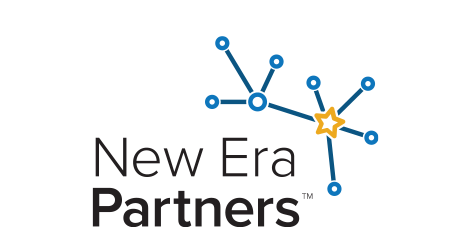A lot has been said about the challenges that the seafood industry faces in complying with FDA’s Food Traceability Rule (FSMA 204). And there are indeed challenges for this global industry that literally feeds the world, with seafood being one of the most highly traded commodities. The global market for seafood was estimated at more than $120.3 billion in 2023, More than 3 billion people worldwide rely on seafood as a significant protein source.
For seafood retailers, however, FSMA 204 will support the efforts that many of them have been making to enhance the traceability of their supply chain. Retailers want their customers to know that they are committed to public health and that, in a commodity beset by fraud, the seafood they are selling is what it claims to be. These retailers want their customers to know that they are choosing seafood sources responsibly, a goal that will be supported by the data that FSMA 204 requires them to obtain from suppliers.
FSMA 204 gives these traceability goals the weight of law. We would like to highlight 5 Ways that FSMA 204 will benefit the retailers on the front lines of providing consumers the seafood they want to enjoy and serve their families.
1. FSMA 204 will help food retailers dissolve the opacity that characterizes the seafood industry.
Natalie Hunter is a traceability advisor at New Era Partners who had a leadership role at the Marine Stewardship Council, which promotes and certifies sustainable fishing standards.
Looking back at the storied past of the seafood industry, Hunter describes it as one that is notoriously opaque, mostly paper-based with agreements sometimes based on a handshake. As the industry becomes increasingly global, it struggles with a low profit margin and resists changes likely to be costly, like digitalization, Hunter says.
Those who sell seafood have not always known where it comes from. But even before FSMA 204, that was changing. Many retailers have been trying to deal with the murkiness of the seafood supply chain on their own, working with organizations like FishWise to incorporate traceability and transparency into their seafood programs. Supermarket chains like Publix have been supporting responsible seafood sourcing, working with organizations like the Sustainable Fisheries Partnership.
For these retailers who have been working on seafood traceability independent of FSMA 204, this new law will support them because of the accountability legally required of the industry, including the companies that supply the seafood sold in stores and restaurants.
2. Retailers will have the data they need to better understand the source of the seafood they sell. And they will be speaking a common traceability language to streamline the flow of data.
FSMA 204 requires companies that manufacture, process, pack or hold foods on the Food Traceability List (FTL) to maintain and share records containing Key Data Elements (KDEs) associated with specific Critical Tracking Events (CTEs). The foods on this list are ones that FDA has identified as requiring additional recordkeeping to protect public health. These foods include a broad array of fresh, frozen, and smoked finfish, crustaceans, and bivalve Molluscan shellfish.
What this means is that there is a lot of information that suppliers are required to provide retail food establishments and that these establishments are required to receive. This information includes:
- Traceability Lot Code (TLC). This identifying combination of letters or numbers would have been assigned by the first land-based receiver of the food from a fishing vessel or when (if) the food is transformed by manufacturing and/or processing or is changed in ways that include commingling, repackaging (and repacking) and relabeling;
- Traceability Lot Code source
- Species and/or market name or product description;
- Quantity and unit of measure; and the
- Location description for the immediate previous source of the food.
FSMA 204 facilitates the use of the same language that enables businesses in the supply chain – including retailers and their suppliers — to understand KDEs in the same way.
3. FSMA 204 will help close the door that lets products from Illegal, Unreported and Unregulated Fishing (IUU) enter your supply chain.
IUU fishing is a global problem that threatens economic security and natural resources. It is estimated that 20% of the world’s catch originates from IUU fishing.
The traceable supply chain envisioned by FSMA 204 will help close the door to those practices. In fact, the first KDEs that must be obtained by the land-based receiver include the harvest date range and locations for the trips during which the food was caught, which, if validated, will decrease the opportunity for IUU catch to enter U.S. food supply chains.
The FDA is not the only federal agency bringing traceability to the seafood supply chain. NOAA Fisheries, also known as the National Marine Fisheries Service, has established the Seafood Import Monitoring Program that requires importers to report key data elements — from the point of harvest to entry into U.S. commerce — for 13 seafood species groups. The goal is to keep products of IUU fishing out of the U.S. marketplace.
And the private sector is also carrying the traceability banner. iFoodDS is a founding partner of the Global Dialogue on Seafood Traceability. The goals are to promote digital traceability and global standards for data and interoperability. In addition to supporting compliance with FSMA 204, a key goal of this partnership is to decrease the opportunity for IUU seafood to enter the U.S. market.
Traceability is not seafood retailers’ only issue. Some have voiced concerns about reports of forced labor on fishing vessels. While not a specific focus of FSMA 204, this issue has drawn the attention of other federal agencies that include the Departments of Commerce, Homeland Security, Justice, Labor, State and Treasury.
In fact, NOAA Fisheries addresses the human rights issue of forced labor on fishing vessels, reporting that federal agencies have a mandate to help end this practice and ensure that products produced with forced labor do not enter U.S. markets. This past February the agency held a summit, bringing together more than 100 officials representing government agencies, labor and environmental advocacy organizations, and the seafood industry to report progress and identify next steps in their efforts to address labor issues within the seafood supply chain.
Another issue for retailers is the prevalence of seafood fraud.
4. Enhanced traceability will help reduce the fraud that plagues seafood retailers.
Hunter says that traceability effectively decreases opportunities for seafood fraud because it requires data to be shared, accepted, and moved by multiple businesses. It is well known that many of the fish captured, both legally and illegally, are mislabeled.
Consumers increasingly want to know where their food comes from. They want to know, for example, that the Chilean sea bass they have ordered is that and not a poor substitute.
The Traceability Lot Code assigned by the first land-based receiver clearly identifies covered foods through the global supply chain until it arrives at a restaurant or grocery store, changing only if the food is “transformed” into a new product, like whole tuna being made into tuna steaks.
When FSMA 204 went final in 2022, Oceana, a nonprofit ocean conservation organization that has done significant research on the issue of fraudulent mislabeling in seafood, praised the rule as reducing the opportunities for a “bait and switch” that can cheat consumers.
5. Responsible businesses sharing necessary data will help ensure that everyone is prepared to respond quickly to outbreaks of foodborne illness.
The core mission of FSMA 204 is to enable industry and the FDA to hone in on the time and place of contamination. The information mandated by FSMA 204 must be accessible to FDA in an electronic sortable spreadsheet during an outbreak investigation. Compliance will help protect public health while reducing the business impacts of outbreaks and product recalls.
However, retailers, distributors, and others have reported experiencing challenges in getting the data required by FSMA 204 from their suppliers. Some suppliers are choosing not to cooperate, instead taking their chances that they’ll come through this unscathed.
But they won’t. Non-compliance with FSMA 204 is not an option. From the time the fish goes from the boat to the first land-based receiver to its arrival at your retail establishment, KDEs must be collected and shared. There are various actions the government can take if voluntary compliance is not forthcoming. These include civil or criminal actions in Federal court. Beyond that, suppliers risk ruining their trading relationships and losing consumer trust.
“Traceability is a team sport. There is a due diligence obligation in this rule – if your suppliers are not in compliance, then your business cannot be compliant. It will weed out the bad apples in supply chains in short order.” says Hunter.
Communication with your suppliers is key. In a July 2023 blog on common questions asked about FSMA 204, we wrote that there is no one-size-fits-all when it comes to working with suppliers. It is critical to stress that they should choose the process or solution that is best for their organization in meeting the FSMA 204 requirements. And it is recommended that your contract with them include a timeline for meeting traceability requirements.
Decreasing opacity and enabling responsible businesses to share necessary data will help ensure that everyone is ready to respond if consumers are threatened by a potentially contaminated food.
Looking at the Big Picture
While we are focusing on retailers here, we recognize that the entire seafood industry is working to comply with FSMA 204. In January we wrote about the benefits of addressing the challenges ahead as the January 2026 compliance deadline approaches.
No matter where you are in the supply chain, help is available.
iFoodDS and New Era Partners have resources to help you find the best traceability and technology solutions. For more information, visit iFoodDS’ FSMA Rule 204 Information Hub and explore the resources available from New Era Partners.


